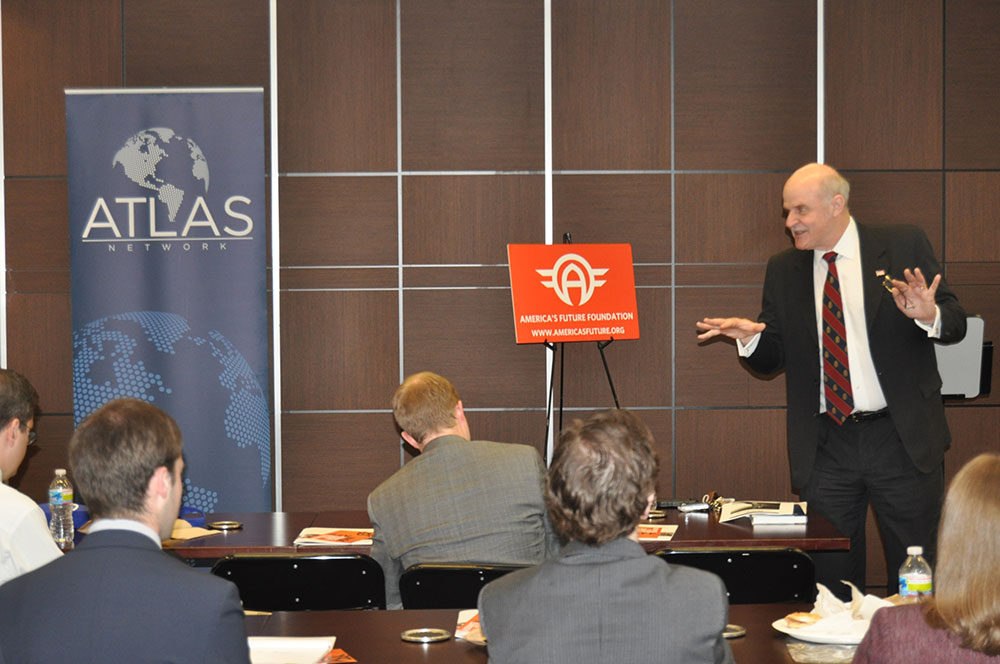When analyzing economic development few cases have much appeal and impact as the reforms in India. Any small change in a country with over 1.2 billion people affects the world. This is a chance to make a change with just 1$.
Just over two decades ago India began liberalizing trade, investments, and other sectors of the economy. More prudent fiscal and monetary policies led to lower inflation and the country, which used to beg for international aid, turned into a potential super power. Much remains to be done and inflation is on the increase, but the way we look at India has changed.
One of the major challenges is to improve access to property rights. From 2005 to 2010 protection for property rights went down from 7.88 to 5.49 in the measurement compiled by the Fraser Institute. In the 2013 Index of economic freedom assembled by The Heritage Foundation, India still scores a 5 out of 10, same as two decades ago.
Private property is so essential that the authors of the Fraser Index argue that economic freedom “should measure the extent to which rightly acquired property is protected and individuals are engaged in voluntary transactions.” But it only releases its power when protected by secure and well-defined titles. It is in this area where India needs much improvement.


They train local people in using GPS devices, and reading maps and satellite images. The information is used to document their land claims which are then reviewed at the village general meetings (gram sabhas), and either approved or rejected. Currently, about 150 villages are being covered under this initiative. This is an effort to implement the Forest Rights Act of 2006, which for the first time recognizes the land rights of forest dwelling communities, including about 100 million people and at least 25 million plots.
The lack of clear property titles clogs the judicial system, it is estimated that around 80% of the cases, particularly before the lower judiciary in almost every state is related to land. This creates opportunities for corruption. If “good fences make good neighbors” their lack maximizes problems, over 10% of murders in the country are related to land disputes.
The use of this technology has already resulted into dramatic improvement in the approval of claims in a few villages. Barun Mitra, founder and leader of the Liberty Institute, who has been working to implement market solutions for almost two decades, seems energized as never before. He tells me about the case of Amarsingh Vasava, who is secretary of the village Forest Rights Committee in Andu village in Dediapadataluka a sub-district inNarmada, state of Gujarat: “In his village the district authorities had earlier rejected as many as 70 out of the total 117 claims. But by submitting these maps with satellite imageries during the appeal hearings, they were able to get as many as 66 of these claims approved and that too for full area under their cultivation!”
All these families who have received titles for their lands will no longer face the daily harassment from bureaucracies. Secure titles also opens the doors for approval and assistance for other improvements such as digging wells and levelling land. This would go a long way in improving their productivity and income. Somabhai Vasava of village Sagai, of the same taluka (group of villages) had similar story to tell. Using these maps they were able to get all of 53 claims approved, which were earlier rejected by the district authorities. Such high rates of approval has generated tremendous enthusiasm in other nearby villages. Overall ARCH hopes to average 90% success.
Thanks to new technologies and liberalization one can check the project and identify the villages on-line, or donate directly or through US charities. Barun Mitra and Anil Patel of ARCH make it easy to join in this effort. They summarize their liberating pitch: “For just 1 dollar this land could belong to their family; 250 dollars could entitle a whole village to their land rights; 500 dollars could buy us 2 GPS instruments to survey village after village.”
Dr. Alex Chafuen is the President of the Atlas Network
*A longer version of this article was originally posted on forbes.com
[Photo: Atlas.org]


